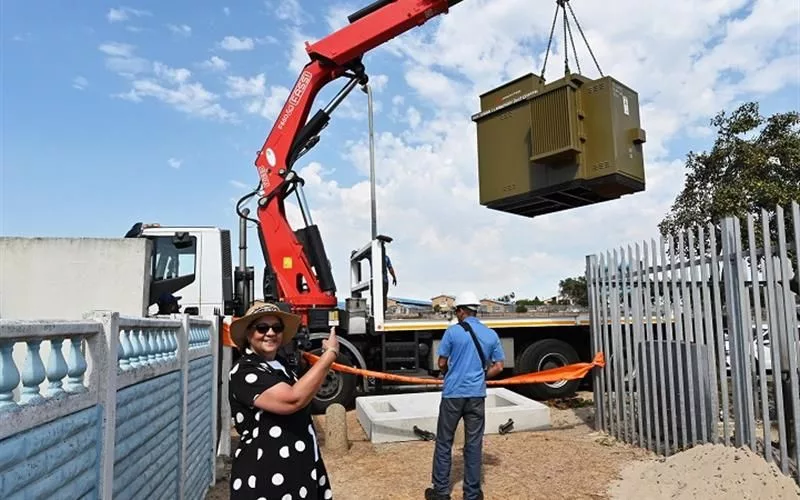The Free State Investment Conference invited business tycoons to explore the many investment opportunities the province has to offer. Deputy Minister Nomalungelo Gina encouraged investors to take advantage of the province’s economic potential and emphasized the government’s commitment to revitalizing the economy. She highlighted the importance of attracting foreign direct investment and supporting local industrial parks while promoting inclusivity and Black Industrialists. The conference served as a strategic initiative to jump-start the province’s economic engine and breathe new life into sectors in decline.
What is the Free State Investment Conference?
The Free State Investment Conference serves as a venue for investors to explore the numerous opportunities that the province presents. It is a strategic initiative by the government to jump-start their economic engine, with a mission to revitalize their economic landscape and breathe new life into sectors that are in decline. The conference underscores the province’s boundless potential and the government’s unwavering commitment to economic development.
The Free State Investment Conference, an esteemed business event held for the second time in Bloemfontein, served as the stage for Deputy Minister of Trade, Industry, and Competition, Ms. Nomalungelo Gina. She confidently addressed the national business elite, urging them to regard the Free State province as a promising arena for economic development.
A Call for Investment
Ms. Gina, radiating assurance, underscored the boundless potential that the Free State holds within its economic terrain. Her appeal was more than just a plea; it was a clarion call aimed at insightful investors. She pointed out that the province is teeming with a plethora of investment prospects ready to be discovered and importantly, capitalized upon.
The Free State Investment Conference, according to Ms. Gina, is more than just a meeting of business minds. It signifies the Free State government’s unwavering commitment to revitalizing their economic landscape and breathing new life into sectors that are in decline. She firmly believes that the indicators of a prosperous and operational province are economic performance, productivity, and employment quality.
Revitalizing the Economy
In her address, Ms. Gina clarified that the conference is a strategic initiative by the government to jump-start their economic engine. It serves as a venue for investors and prospective investors to explore the plethora of opportunities that the province presents.
Ms. Gina acknowledged the national government’s dedicated efforts to resuscitate the country’s economy, aiming to recapture the vitality that marked the pre-COVID 19 epoch. Their strategy encompasses developing new growth sectors via industrialization, localization, and export promotion, thus playing a pivotal role in aiding South African businesses to prosper and grow.
In a bid to attract foreign direct investment, the national government has pinpointed five key sectors in alignment with the National Development Plan and sector masterplans. Ms. Gina spotlighted these as green hydrogen, cutting-edge digital industries, infrastructure, Special Economic Zones, industrial cannabis, and advanced agro-processing.
Local Investment Targets
However, Ms. Gina’s focus was not solely on national issues. She encouraged the Free State government to extend its support to the Maluti-A-Phofung Special Economic Zone and the rejuvenated Botshabelo and QwaQwa industrial parks. She underlined the necessity for the Special Economic Zone to draw in major companies and stressed the role the provincial government has to play in making the industrial parks appealing for businesses.
Ms. Gina emphasized that the provincial government needs to put dedicated efforts into attracting large-scale factories, thereby creating more job opportunities for the communities surrounding these parks. She believes that these factories will be instrumental in attracting investment flows, mimicking the success of the SEZs in Eastern Cape, Gauteng, and KwaZulu-Natal.
Emphasizing Inclusivity
The discourse was not focused solely on economic growth but also on inclusivity. Ms. Gina asked the province to support and foster more Black Industrialists across various economic sectors through localization and industrialization. She views this as a vital component of the national economic transformation objectives.
As an affirmation of her commitment to inclusive economic growth, Ms. Gina extended an invitation to the second installment of the Black Industrialists and Exporters Conference, slated to occur in Johannesburg on March 20, 2024. She expressed her wish to see more Black Industrialists from the province participating in the conference, exhibition, and awards ceremony.
Without a doubt, the Free State province is prepping for a new phase in its economic story. Backed by the steadfast support of both the national and provincial government, it aims to transform into a desirable center for investors. The secret to success, as Ms. Gina emphasized, lies in active engagement and capitalization of the opportunities the province provides.
Who is Deputy Minister Nomalungelo Gina?
Deputy Minister Nomalungelo Gina is the Deputy Minister of Trade, Industry, and Competition for South Africa. She is a member of the African National Congress and has been in office since May 2019. Prior to her appointment as Deputy Minister, she served as the Chairperson of the Portfolio Committee on Trade and Industry in the National Assembly.
What are the key sectors for foreign direct investment in Free State?
The national government has identified five key sectors aligned with the National Development Plan and sector masterplans for foreign direct investment in South Africa. These sectors are green hydrogen, cutting-edge digital industries, infrastructure, Special Economic Zones, industrial cannabis, and advanced agro-processing.
What are the Maluti-A-Phofung Special Economic Zone and the Botshabelo and QwaQwa industrial parks?
The Maluti-A-Phofung Special Economic Zone and the Botshabelo and QwaQwa industrial parks are areas in the Free State province specifically designated for economic development. The Maluti-A-Phofung Special Economic Zone is a 103-hectare industrial park with a focus on manufacturing, while the Botshabelo and QwaQwa industrial parks have been recently rejuvenated to attract investment and create jobs.
What is the Black Industrialists and Exporters Conference?
The Black Industrialists and Exporters Conference is an annual event held in South Africa that aims to promote and encourage the growth of black-owned businesses in the country. It provides a platform for black industrialists and exporters to showcase their products and services, network with potential partners and investors, and participate in workshops and training sessions.
What is inclusivity in the context of economic growth?
Inclusivity in the context of economic growth refers to the idea that economic development should benefit all members of society, regardless of their race, gender, or socioeconomic status. It involves creating opportunities for marginalized communities and promoting greater equality and social justice in the economy.












